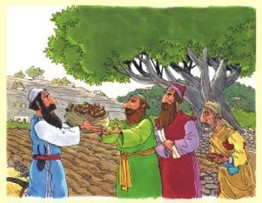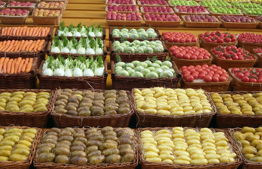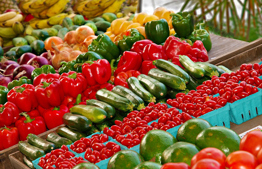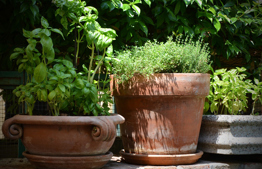Laws of Taking Challah
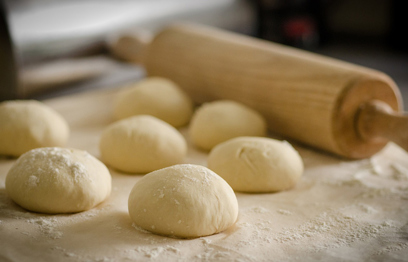
Hafrashat challah, taking challah, is one of the unique mitzvot tied to the Land of Israel and applies in Israel and abroad. This halachic guide outlines the laws of taking challah and describes the procedure.
- The Rema in his gloss to the Shulchan Aruch (Orach Chaim §242:1), writes: “It is customary in homes to knead [the amount of dough subject to] challah to form loaves for the purpose of blessing and consumption on Shabbat and holidays, which displays respect for Shabbat and holidays …”
- Both men and women are commanded to perform the mitzvah of challah, but women take precedent to the men for this mitzvah.
- One who makes dough from one of the five types of grains (wheat, barley, rye, spelt, and oats), in the amount subject to challah in order to bake it needs to separate challah from it. If challah is not taken from the dough, it is forbidden to eat the baked product.
- If the dough contains at least 1.666 kilo (a little more than 7 cups) of flour, one should take challah with a blessing. If the amount of flour in the dough is more than 1.2 kilo but less than 1.666 (5-7 cups), challah should be taken without a blessing.
- We take challah with a blessing even from dough that contains ingredients besides flour and water, such as sugar, honey, spices, etc., even from dough for baked goods whose blessing is mezonot (and not only hamotzi.)
- For a thick dough (a dough that is solid enough that when the bowl is overturned, all of the dough falls out together) that will be baked in the oven, challah should be taken with a blessing.
- For a thick dough that will be cooked in water or in another liquid (such as deep frying in oil), challah should be taken but without a blessing.
- For a thin (pourable) batter meant to be baked in the oven, challah should be taken with a blessing but only after it is baked.
- A thin batter that will be cooked is exempt from challah.
- The custom is to take a piece of dough less than the size of a kezayit (27 cc). Some take more than a kezayit.
- When taking the challah, the piece of dough that we are taking should be next to the dough or baked goods we are separating it from. If one did not do so, however, it does not disqualify the separation of challah.
- There are several versions of the blessing for separating challah.
The blessing is: ברוך אתה ה' אלוקינו מלך העולם אשר קדשנו במצוותנו וצוונו, with the following possible endings:
- (להפריש חלה (מן העיסה
- להפריש תרומה
- להפריש תרומה חלה
- להפריש חלה תרומה
Everyone should say the blessing according to their family’s custom.
- After making the blessing, designate the piece of dough as challah by saying ”הרי זו חלה”. If you do not designate the piece of dough or baked good out loud as challah, this does not disqualify the separation.
- Since the destruction of the Beit Hamikdash we do not give the challah to a Kohen, but rather burn it. The challah should be burned by itself, not baked together with the loaves of bread or baked goods. When burning the challah, it is possible to place the dough on the bottom of the oven and not in a tin. If it is not possible to burn the bread, it is preferable to take less than a kezayit, double bag it (according to some, the bag/material should be opaque) and place it in the garbage.
- Challah is not taken on Shabbat.
- Challah is not taken on Yom Tov from dough that was prepared before Yom Tov. However, it is possible to take challah from dough that is prepared on Yom Tov itself.
The procedure for taking challah is as follows:
- Place the dough in front of you, and recite the following blessing:
Ashkenazi custom: בָּרוּךְ אַתָּה יי אֱלֹוקינוּ מֶלֶךְ הָעוֹלָם, אֲשֶׁר קִדְּשָׁנוּ בְּמִצְוֹתָיו, וְצִוָּנוּ לְהַפְרִישׁ חַלָּה
Some add: מִן הָעִסָּה
Sephardi custom: בָּרוּךְ אַתָּה יי אֱלֹוקינוּ מֶלֶךְ הָעוֹלָם, אֲשֶׁר קִדְּשָׁנוּ בְּמִצְוֹתָיו, וְצִוָּנוּ לְהַפְרִישׁ חַלָּה תְרוּמָה
- Take a small part of the dough, and say: “הרי זו חלה"
The custom is to take a piece of dough less than the size of a kezayit (27 cc).
- Double bag it and place it in the trash, or burn the challah by itself.

